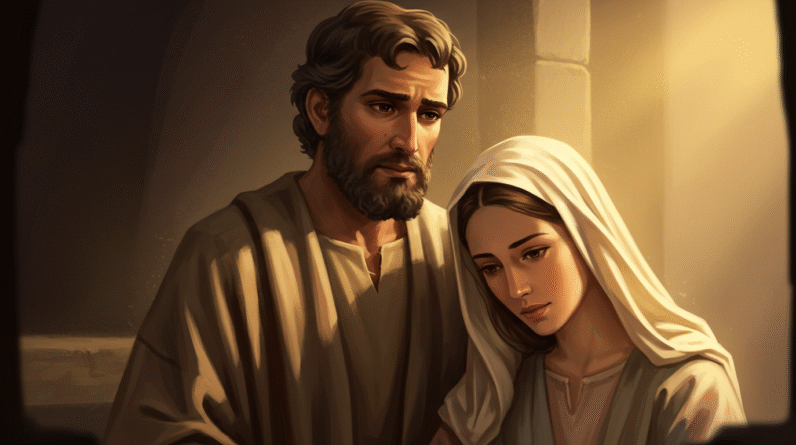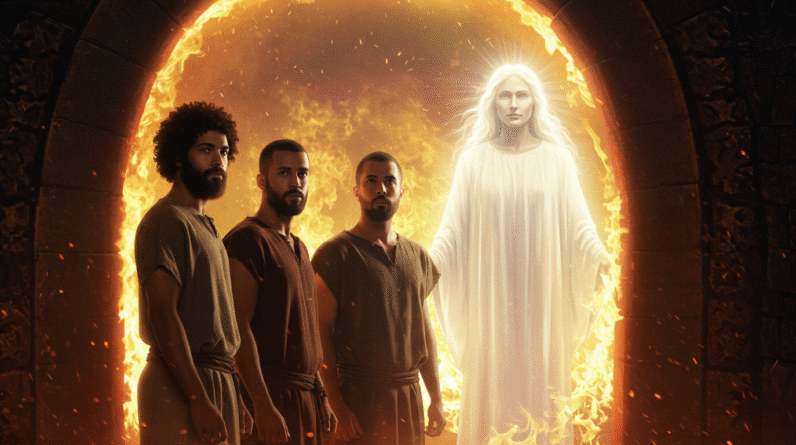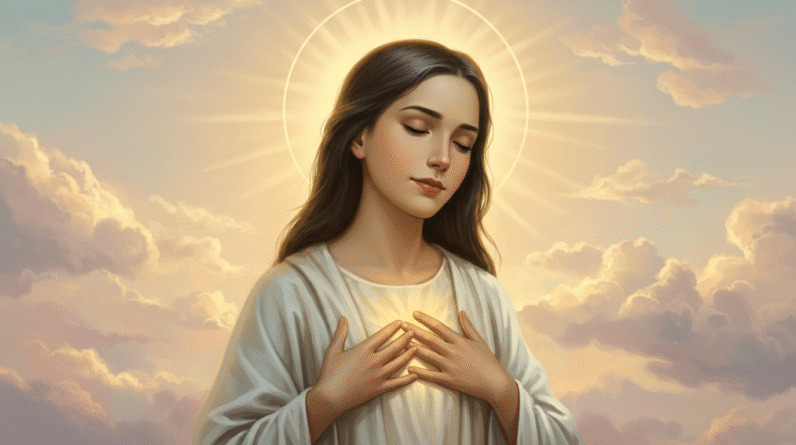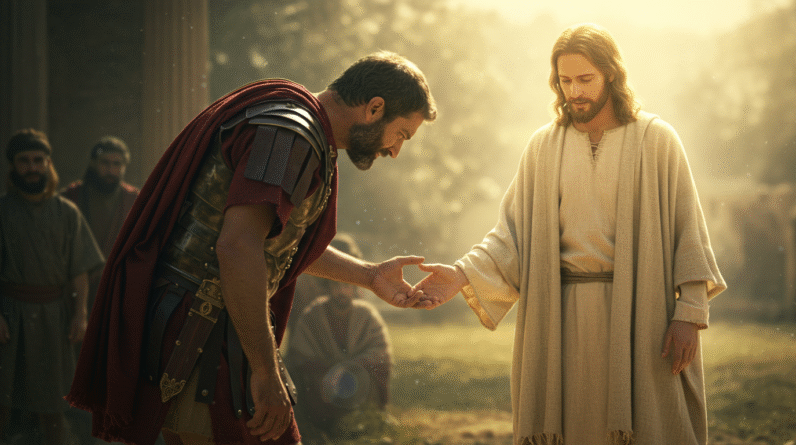Explore the transformative redemption stories from Ruth 4:13-17 and Luke 15:11-32. Delve into themes of love, forgiveness, and new beginnings in this insightful post.

Redemption Stories – Ruth 4:13-17; Luke 15:11-32
Redemption is a powerful theme that resonates deeply within the human spirit. It offers hope, second chances, and the possibility of new beginnings. The Bible, rich with redemption stories, brings to light the transformative power of love, forgiveness, and faith. Two of the most compelling redemption narratives are those of Ruth and the Prodigal Son. These stories, found in Ruth 4:13-17 and Luke 15:11-32, teach us profound lessons through remarkably different journeys.
Ruth’s Redemption – A Tale of Loyalty and Love
In the biblical world of Ruth, we find one of the most beautiful and enduring stories of redemption. Ruth, a Moabite woman, faces tragic loss but discovers a path to redemption through unwavering loyalty and love. Her story begins with sorrow but ends in joy, serving as an anchor for redemption narratives within the scriptures.
The Story of Ruth
Ruth is introduced as a woman experiencing loss, having lost her husband and being left with her mother-in-law, Naomi. Despite the tragedy, Ruth’s loyalty to Naomi is unshakeable. When Naomi decides to return to Bethlehem, Ruth famously pledges her allegiance to Naomi, saying, “Where you go, I will go, and where you stay, I will stay” (Ruth 1:16). This selfless commitment sets the stage for her eventual redemption.
In Bethlehem, Ruth encounters Boaz, a wealthy landowner who shows her kindness and generosity. Over time, Boaz fulfills the role of kinsman-redeemer for Ruth, marrying her and securing her place and future in the community. Boaz’s actions exemplify integrity and compassion, pivotal in Ruth’s story of redemption. Ultimately, Ruth becomes the great-grandmother of King David, linking her directly to the lineage of Jesus Christ, a vital connection in biblical history (Ruth 4:13-17).
Lessons from Ruth’s Life
Ruth’s narrative offers several lessons applicable to modern life. Firstly, her loyalty emphasizes the importance of steadfast relationships and commitments. In an era where loyalty is often undervalued, Ruth’s devotion to Naomi provides a timeless example of selflessness and love.
Additionally, Ruth demonstrates resilience and courage. Despite facing an uncertain future, Ruth perseveres, showing that courage in adversity can lead to profound change. Her story teaches us that redemption is often borne out of perseverance and faith.
Finally, the role of Boaz highlights the power of kindness and integrity. His willingness to step up as a redeemer illustrates how acts of compassion can significantly alter someone’s course in life.
The Story of the Prodigal Son
The parable of the Prodigal Son, found in Luke 15:11-32, is an iconic tale of repentance and forgiveness. It centers around a young man who seeks redemption after squandering his inheritance and falling into destitution.
The story begins with the younger son demanding his share of the inheritance from his father, only to waste it on reckless living. When famine strikes and he finds himself in dire need, the son decides to return home, hoping for forgiveness and a place as a servant in his father’s house. Upon his return, the father welcomes him with open arms, celebrating his return with a feast, much to the dismay of the older brother who feels slighted by the father’s generosity.
Lessons from the Prodigal Son’s Life
This parable vividly illustrates the themes of repentance and forgiveness. Here, the son’s decision to return home highlights the opportunity for redemption regardless of past mistakes. It emphasizes that it is never too late to seek forgiveness and change one’s ways.
The father’s reaction underscores the power of unconditional love and forgiveness. It challenges us to extend grace and mercy to others, even when wronged. The father’s joy at his son’s return is a powerful reminder of the value of every individual and the celebration of restored relationships.
Lastly, the reaction of the older brother offers a cautionary tale about righteousness and resentment. It encourages introspection about our attitudes towards forgiveness and restoration, pushing us to embrace empathy and understanding.
Connection to Today’s World
Both Ruth and the Prodigal Son’s stories hold immense relevance in today’s world. In a society that grapples with fractured relationships, Ruth’s loyalty calls us to value commitment and steadfastness. Her resilience in the face of adversity speaks to those facing hardships, offering hope that perseverance can lead to redemption.
The Prodigal Son’s story relates to the struggles of those caught in the cycle of mistakes and regret. It offers a path to redemption through repentance and forgiveness, highlighting the enduring power of love and acceptance. The father’s welcoming embrace encourages modern readers to consider the transformative power of forgiveness and the joy of restored relationships.
Key Bible Verse
In Ruth’s story, the verse “So Boaz took Ruth and she became his wife. When he made love to her, the Lord enabled her to conceive, and she gave birth to a son” (Ruth 4:13) serves as a beacon of her redemption. It symbolizes new beginnings and God’s reward for loyalty and faith.
Similarly, the Prodigal Son’s hallmark verse “But while he was still a long way off, his father saw him and was filled with compassion for him; he ran to his son, threw his arms around him and kissed him” (Luke 15:20), captures the essence of forgiveness and unconditional love. This verse echoes the celebration of returning to grace and offers readers a vivid picture of divine and earthly forgiveness.
Thought-Provoking Questions
Reflecting on these stories, consider these questions:
- How can Ruth’s loyalty and resilience inspire you to persevere in challenging relationships or situations?
- How does the Prodigal Son’s journey influence your understanding of repentance and forgiveness?
- When you face wrongs and betrayal, do you respond like the father with grace, or like the older brother with resentment?
These stories encourage self-reflection on personal values and actions, inspiring us to seek redemption and extend grace to others.
Historical and Cultural Contexts
Understanding the historical and cultural settings enriches these stories. Ruth’s tale unfolds in a patriarchal society where widows faced immense vulnerability. Her story of finding security through Boaz’s kinsman-redeemer role highlights the societal structures and customs of that time. Moreover, the parable of the Prodigal Son illustrates familial dynamics within ancient Jewish culture, emphasizing the significance of inheritance and familial honor.
A Prayer for Redemption Inspired by Ruth and the Prodigal Son
Heavenly Father, we come before You with hearts open to Your wisdom and grace. Teach us the strength and loyalty of Ruth, so we may be faithful in our relationships and resilient in our adversities. Grant us the humility and courage of the Prodigal Son, that we might seek forgiveness and welcome those who return to us in repentance. May we embody the compassion of the father, offering forgiveness and love without reservation. Guide us on our path to redemption and shine Your light into our lives. Amen.







